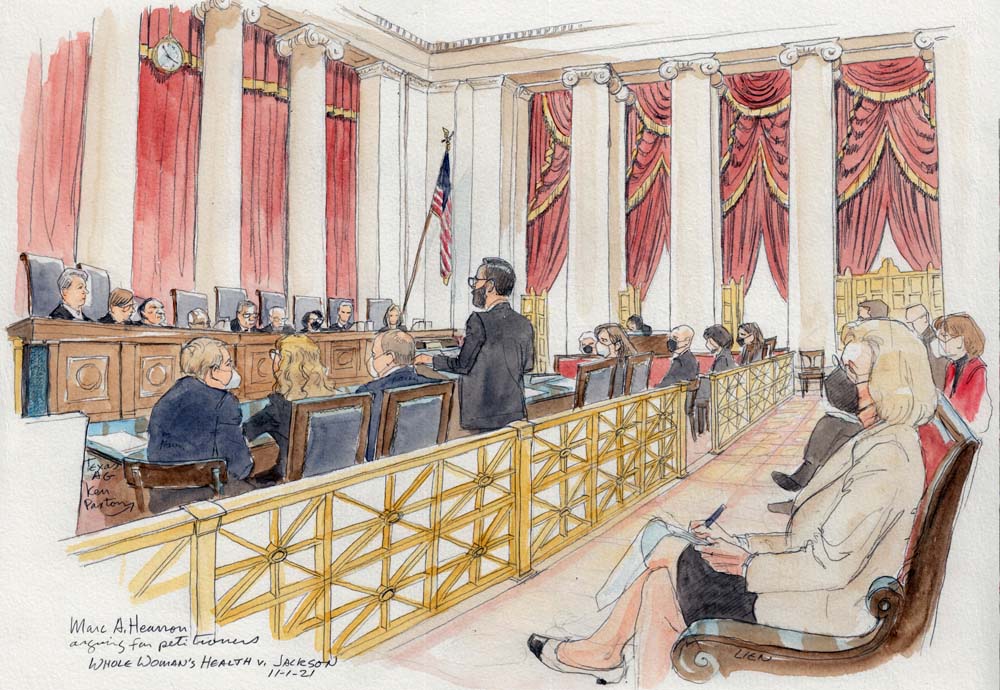Scenes from this morning's back-to-back oral arguments on S.B. 8, the Texas abortion law. All sketches by @Courtartist.
1. Elizabeth Prelogar delivers her debut argument as Biden's solicitor general. She was confirmed to the position last week.
1. Elizabeth Prelogar delivers her debut argument as Biden's solicitor general. She was confirmed to the position last week.

2. Marc Hearron of @ReproRights argues on behalf of Texas abortion clinics. (Plus a @NinaTotenberg cameo!) 

3. Texas Solicitor General Judd Stone argues on behalf of the state of Texas. He argued in both cases the court heard this morning. 

4. Jonathan Mitchell, the architect of S.B. 8, argues on behalf of private individuals who wish to bring enforcement lawsuits under the law. 

• • •
Missing some Tweet in this thread? You can try to
force a refresh




